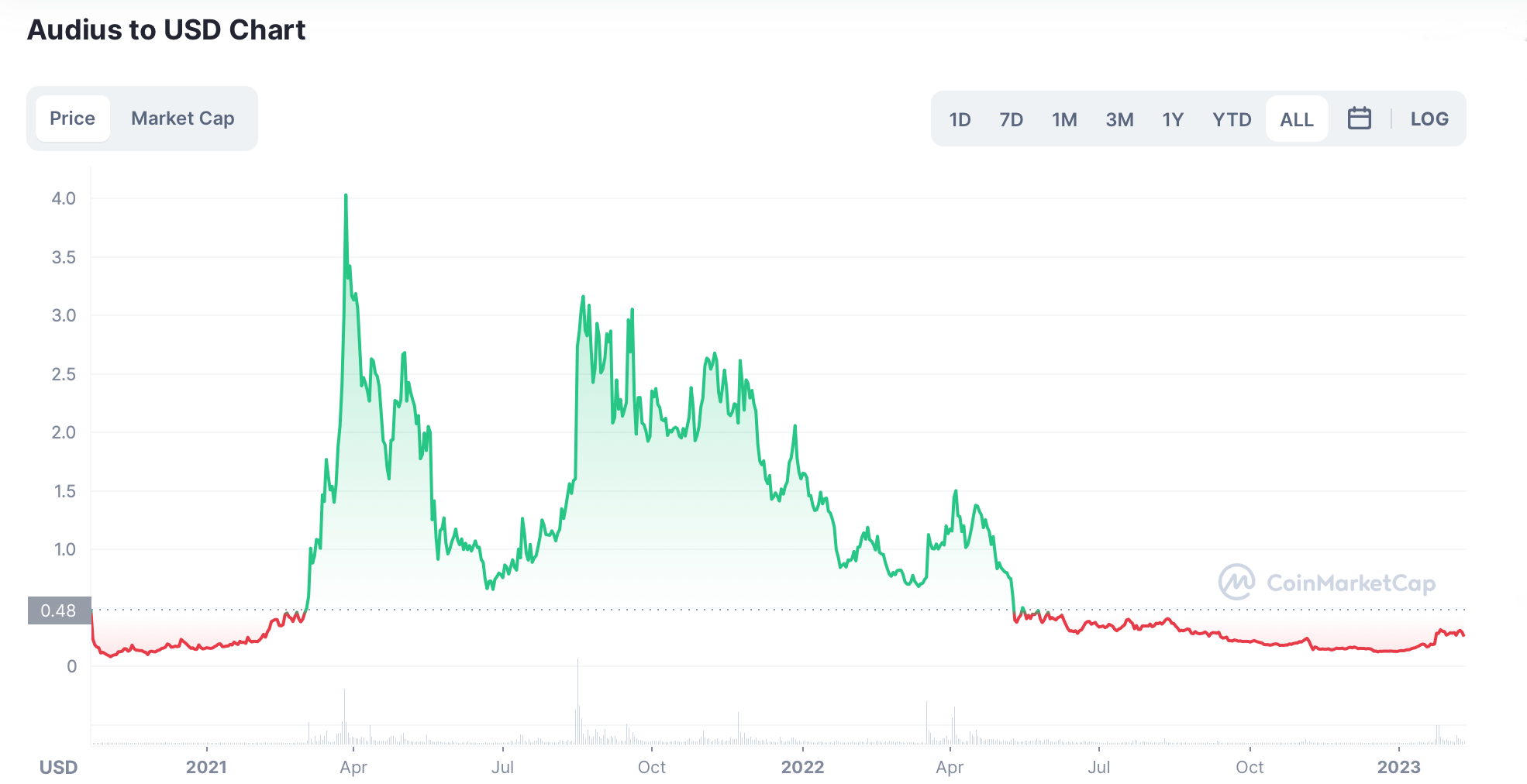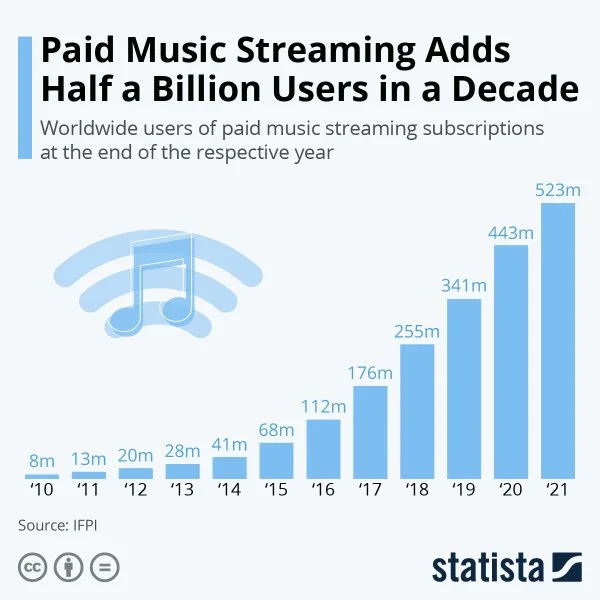Bitcoin Derived Streaming
A friend of mine sent me a link to a bitcoin derived streaming platform called Audius. The founders are clearly quite smart, energetic and well connected. I wish they were on this project. And while participation in Audius seems attractive, the troublesome reality is that the success of the token itself, may determine the ultimate fate of the platform.
During the launch of Audius, the token did rather well. But, as music streaming became even more prevalent during 2022, the less market share Audius had, so its initial glimmer faded. Although some people may have made quite a bit of money around April of 2021 due to the increased value of the token, since then most have lost money. The value of the token has dropped from $4 to only about 25 cents. One can only wonder if the value of the token tracked the popularity of the platform?
While the idea of a distributed music database is indeed interesting and could solve some of the problems attributed to the streaming ecosystem, the probability that it will overwhelm the consumer culture already established, is sadly doubtful. Indeed, in the time that Audius garnered about a half million users, the streaming industry at large, added about 275 million to its ranks. In order to really help all musicians, Audius would have to become the only streaming platform. That challenge can’t be understated. While it will probably continue to serve a small group of ardent fans, distributed music storage will not replace the giant streaming platforms any time in the near future. So how can musicians get paid for what they create?
Streaming User Exponential Expansion
The Music Industry Blog states that there “were 616.2 million subscribers by the mid-point of 2022”, which is over 1200 times the number of users with Audius.
Fair Trade Music Distribution Group believes that an economy parallel to that of the streaming music giants can be created in a way that it leverages, but does not compete with, or disrupt, their economic models. The key to a new music economy is to build upon what already exists and add value.
While we laud Audius for a bold experiment, we wish that the energy exerted to create a new but competing streaming system had been directed instead at parallel, synergistic and ultimately more easily established technology. We invite them to look at the Fair Trade Music Distribution concept and consider investing in that future.
A new token should only be created to guarantee that the gas required to create an NFT series remains low. That remains one of the key challenges for using NFTs as proof of music ownership. In order for NFTs to have credibility, they need to represent something other than a symbolic link to a song. They need actual value. By using NFTiPoDs, Non-Fungible integrated Play on Demand tokens, which provide an actual service to the owner, credibility is achieved. While there may still be speculation as to the value of some NFTiPoDs, due to their rarity or collectability, the basis for their value will always remain the ability to play a song on demand, with any streaming service or on any device.

